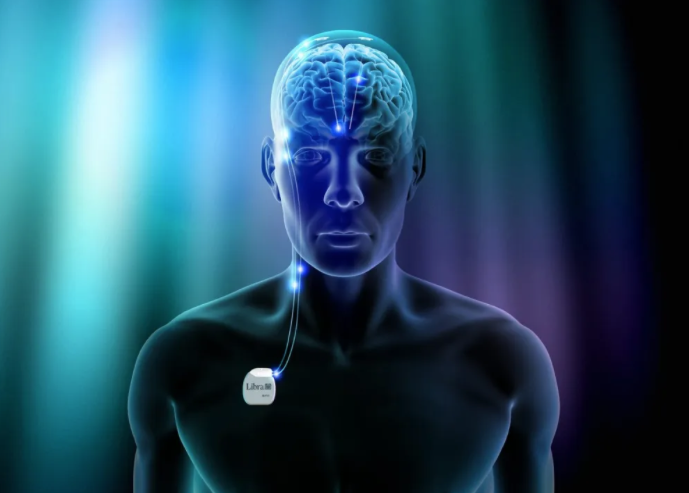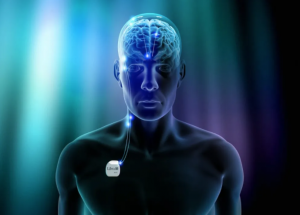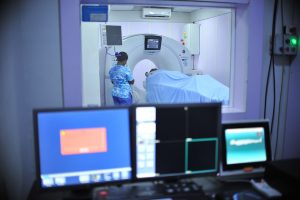Scientists are working on ‘moral enhancement technologies’
4 min read
Researchers are developing technologies that can be used to ‘make us more moral people’, with proponents arguing we need to ‘shape better humans’ in order to solve world problems.
Shaping the brain to ‘stop aggression’.
‘MORAL ENHANCEMENT’
Over the last few years, scientists have argued that we can, and perhaps should, use technology to ‘enhance’ our moral abilities — to become a more cooperative, empathetic, or ‘properly motivated’ species.
Traditionally, moral development has been facilitated by social institutions. such as religion, education and societal convention. But the era of technology could change this all of this, and perhaps already is.
The concept of “moral enhancement” is an emerging discussion in the field of bioethics. Bioethicists ask: Can, and should, biomedical interventions be used to make people ‘morally better’?
While one could debate what “more moral” means, the literature on the subject focuses on ideas of making people more cooperative, altruistic, and the like.
Moral enhancement refers to the use of bio-medicine to improve moral functioning. Some suggested methods include decreasing bias, increasing empathy, improving self-control and enhancing intelligence.
Exploration in this space is well under way.
The term “moral enhancement” was first used in a 2008 essay by Tom Douglas. It generally refers to biomedical enhancements, but can refer to any technological attempt to make humans more moral.
Since then, the field has gained more interest from the broader scientific community.
 One 2022 research paper explores a proposal the author thinks is “underappreciated”: that moral outcomes could be improved by reducing aggression.
One 2022 research paper explores a proposal the author thinks is “underappreciated”: that moral outcomes could be improved by reducing aggression.
 While this may seem like science fiction, consider the other types of human ‘enhancement’ that already exist.
While this may seem like science fiction, consider the other types of human ‘enhancement’ that already exist.
Transhumanists are acquiring new modes of perception through seismic sensors, neural implants and magnetoreception devices.
Smart drugs are used for purported cognitive benefits such as memory and alertness – and brain-computer interfaces are fusing mind and machine.
It’s not a huge leap, then, to see how this will naturally evolve to include the targeting of the biological processes that mediate our social behaviours.
So how would this type of concept truly work?
HOW IT WOULD BE DONE
Psychology defines aggression as “any behaviour intended to cause harm”. This excludes consensual harm which a person desires for some greater good, such as surgery or tattooing.
Aggression comes in two broad varieties: reactive and instrumental.
Reactive aggression is described as “hot-blooded” and involves extreme anger in the face of a threat. Instrumental aggression is “cold-blooded” and involves calculated acts with low emotional arousal.
The goal here is to shape both, with a key focus on the non-physical ‘mental aggressions’ of humans.
Precise biomarkers of aggression haven’t yet been established, but scientists have identified some key contributors. These include a range of genes, receptors, neurochemicals related to serotonin and dopamine, hyperactivity of the amygdala, and reduced brain matter in particular regions.
If they can target these types of factors, they will find new frontiers on influencing the human mind.
 Neuromodulation techniques have been already found to lower aggression by directly altering brain activity.
Neuromodulation techniques have been already found to lower aggression by directly altering brain activity.
One example involves a “painless” procedure in which electrodes are placed on a person’s head to excite or inhibit a specific part of the brain.
Researchers have suggested we could use such technology on young people with conduct disorders to ‘prevent problematic behaviour in adulthood’.
 Gene-based strategies, such as CRISPR, also offer ‘hope’ for therapeutic and enhancement purposes.
Gene-based strategies, such as CRISPR, also offer ‘hope’ for therapeutic and enhancement purposes.
This technology works by inserting genetic material into a person’s body to modify or replace ‘unwanted genes’. Most gene therapies are still in early trial stages.
Importantly, there are questions over whether moral enhancement is already happening, such as when we take drugs that change our brain chemistry.
New moral enhancement strategies as a part of existing pre-emptive medical treatments are suggested.
Indeed, progress is being made on this type of alteration, directly related to emerging fields we have discussed.
Here is the problem, however: Even if we could safely target the determinants of reactive aggression, there are lingering practical and ethical considerations. For one, not all aggression is antisocial.
Aggression is often necessary for acts of protection and self-defence.
People can also have mixed motivations, meaning different aggression types can be present in a single act.
Some researchers argue for additional classifications such as “micro”, “prosocial” and “appetitive” aggression.
Why is the Cult of Scientism so determined to ‘regulate aggression’ in humans?
What kind of impact will this type of research have a person’s character and sense of self?
How will autonomy, personal freedom and the possibility of coercive treatment factor in?
In Aldous Huxley’s dystopian classic, aggression — such as fighting, sports or physical competition — is considered a ‘primitive’ practice that disrupted the peace of a ‘perfect society’.
This is the Brave New World Order, ladies and gentlemen.
Pharmalogical and technological somatisation.
Source: https://tottnews.com/2022/07/11/moral-enhancement-technologies/









